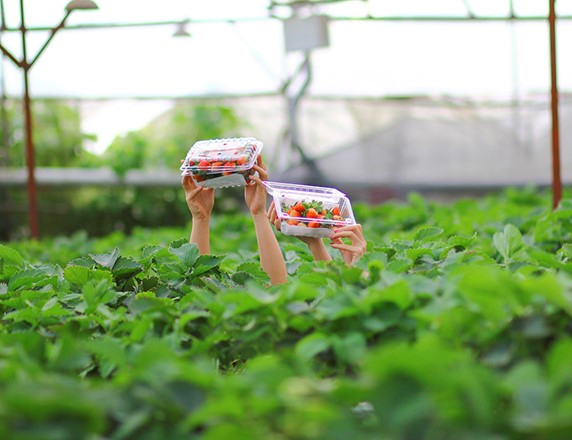The necessity of organic farming
Today, high consumption of poison and fertilizers in agricultural products is a major health problem in the whole world, and especially in Iran. Currently, in our country per capita consumption of poison in agricultural products per person is 400 grams, as well as the use of fertilizers, has increased from 2.5 to 3.5 million tons in the past 10 years. In conventional agriculture, more than 300 types of hazardous chemicals, such as pesticides, herbicides and chemical fertilizers, are used to control pests and insects and soil fertilization. The remains of these materials, in addition to contaminating groundwater and air, attracting plants And trees, and part of it in agricultural crops as a sample of fruits and vegetables, and will be transmitted to the human body during consumption.
Unfortunately, contaminated water with this type of material has reached human consumption and exacerbates its complications. Remains of pesticides and chemicals in agricultural products in the development of gastrointestinal diseases, immune system, endocrine glands, neurological and carcinogenicity in body organs, maternal abnormalities in infants, low birth weight, abortion, precocious puberty and decrease in number Sperm plays a major role. Research on the adverse effects of these materials suggests that 60% of pesticides, 90% of fungicides and 30% of insecticides are carcinogenic.
In order to produce healthy and clean products, as a result, healthy and joyful people, there is no other way than organic farming. Organic farming means using traditional and scientific information to reduce the use of pesticides and chemicals in agricultural and livestock production. The use of organic herbal products is closely related to the health of the community.
In organic farming, based on the correct management of the soil and the plant and tree growth environment, it acts in such a way that the nutrition of plants and trees does not interfere with the balance of the elements in the soil, and when growing, there is no need to Do not use toxins and pesticides. In this type of agriculture, the use of organic fertilizers, such as leafy soil, algae and animal and biological fertilizers, is used to feed agricultural soil rather than using chemical fertilizers. In the event of the need to fight pests, instead of using pesticides and pesticides, biological practices such as bees and bacteria or resistant cultivars to cultivate pests are used, and in this type of farming, seeds Modified genetically and exposed to radiation is not used. In this way, the ultimate consumer product will be free of toxic and chemical residues and preservatives.
For organic agricultural production, the soil is sent to the reference laboratories, and the soil’s health is that there are no remaining standards of toxicity and fertility for 3 years based on standards. To produce various organic products, the remaining pesticides and used fertilizers must first be eliminated, which means that the time when these residues disappear for crops, gardens, livestock, poultry and bees are different according to global standards. It also improves the soil texture and improves soil fertility and increases the nutrient content of the soil by improving the beneficial soil and fermentation of organic matter.
Soil fertilization is used in the organic farming of compost, animal fertilizers, and organic fertilizers. In this field, the land is subjected to the least manipulation, such as plowing, and it is used for biological fertilizers, suitable cultivation rotation, cover plants and …. As a result, soil erosion and soil biodiversity increase. The use of non-renewable resources such as oil should be used to produce fertilizers, and organic materials are not used in organic farming. Organic farming also reduces greenhouse effect because many of the activities in organic farming, such as the minimum tillage, the use of nitrogen stabilizing plants, the return of agricultural waste to the soil, the use of cover plants, increase the return of carbon to soil, and maintain and Causes carbon storage. Due to the fact that organic farming does not use chemical fertilizers and pesticides, we will not have water pollution with these materials.
Organic farming is synonymous with ecology, which stabilizes the soil texture, maintains the water cycle, the carbon cycle, the food cycle and the less polluted land and drinking water. Organic farming also contributes to the conservation of biodiversity and biodiversity. In the ecosystem of preserving natural resources in organic farming areas and lack of chemicals, they will preserve life. The use of genetically modified (transgenic) processes in organic farming is not permissible. Because the effects of genetically modified products are still not well known, genetically-modified plants carry many environmental hazards.
Economic benefits of organic production
Given the ever-increasing demand for organic agricultural products, we can export organic agricultural products to other countries with standards and, provided that we reduce pesticides, chemicals and the addition of products. The market value of organic agricultural products in the world is 1.7 to 4 times more than conventional products, so if Iranian farmers can produce and export organic produce, the value of agricultural exports will be two to four times as high. With the production and export of organic products, the value added of agricultural products is quadrupled. Currently, America, Europe and the Far East are the largest consumer of organic products in the world. The market for organic products in the United States is 51%, Europe 46%, and the rest of the world 3%. Encouraging and encouraging community members to make more use of organic products and natural ingredients requires proper advertising.


